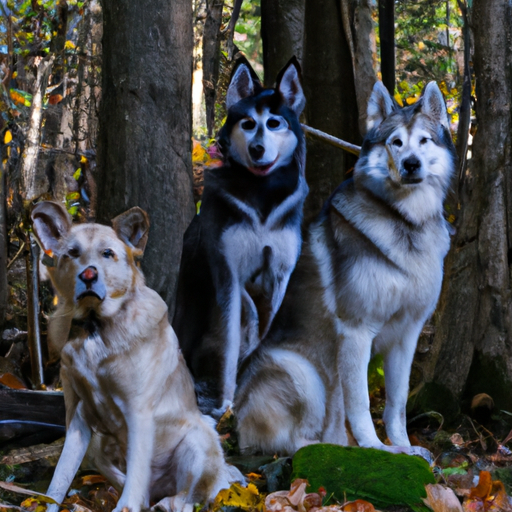1. Your Discovery Journey Begins: Understanding Canine Ancestry
You’ve probably heard the phrase ‘man’s best friend’, but have you ever stopped to ponder on how deep this friendship goes? Yes, your lovable four-legged friend shares a surprising amount of DNA with wild wolves. Unraveling the genetic lineage of dogs can give you, as a caregiver, invaluable insights into their behaviors, instincts, and health predispositions. This knowledge can empower you to provide the best care and understanding for your furry friend.
2. The Wolf Within: Breeds Closest to Their Ancestral Roots
The domestication process has led to the creation of hundreds of unique dog breeds, each with their own set of characteristics. However, some breeds still retain strong genetic links to their wild ancestors. Let’s take a closer look:
- Siberian Husky: Known for their striking resemblance to wolves, Siberian Huskies share a significant portion of their genome with wolves. They are robust, resilient, and have a high prey drive.
- Alaskan Malamute: Another breed that’s hard to distinguish from wolves, the Malamute is bred to survive harsh Arctic conditions, much like their wolf relatives.
- Shiba Inu: This Japanese breed may not look like a wolf, but genetically they are one of the most primitive dog breeds.
| Breed | Characteristics | Ancestral Link |
|---|---|---|
| Siberian Husky | Robust, resilient, high prey drive | Strong |
| Alaskan Malamute | Built for harsh conditions, loyal, independent | Strong |
| Shiba Inu | Agile, alert, good natured | Strong |
3. Why Does It Matter: The Significance of Genetic Heritage
Understanding a dog’s genetic lineage helps you, their caregiver, appreciate their unique behaviors and tendencies. For example, breeds closer to wolves may have a stronger prey drive, a greater need for exercise, or be more independent. This knowledge allows you to tailor your care to meet their unique needs and ensure they live a fulfilled and happy life.
4. Embracing Your Dog’s Inner Wolf: Care Tips for Primitive Breeds
Caring for a dog with a strong wolf heritage can be a rewarding experience, but it also requires a certain level of understanding and patience. Here are some tips:
- Exercise: These breeds usually have high energy levels and require plenty of exercise.
- Training: Early socialization and training are crucial. These breeds can be independent and may require a firm hand.
- Nutrition: A balanced diet that mimics what their wolf ancestors would have eaten can be beneficial.
5. Frequently Asked Questions
Q: Are all dogs descended from wolves?
A: Yes, all domestic dogs are descended from wolves, specifically the gray wolf.
Q: Do dogs that look like wolves behave like them?
A: Not necessarily. Behavior is influenced by a combination of genetics, training, and environment.
Q: What should I do if my dog displays ‘wolf-like’ behaviors?
A: Understanding and patience are key. Provide appropriate outlets for their instincts and consider seeking help from a professional.
Remember, every dog is unique and deserves love and understanding, regardless of its ancestral roots. After all, it’s not just about what’s in their DNA, it’s about the bond you share. Celebrate the wolf within your dog, and you will strengthen the bond between you.



